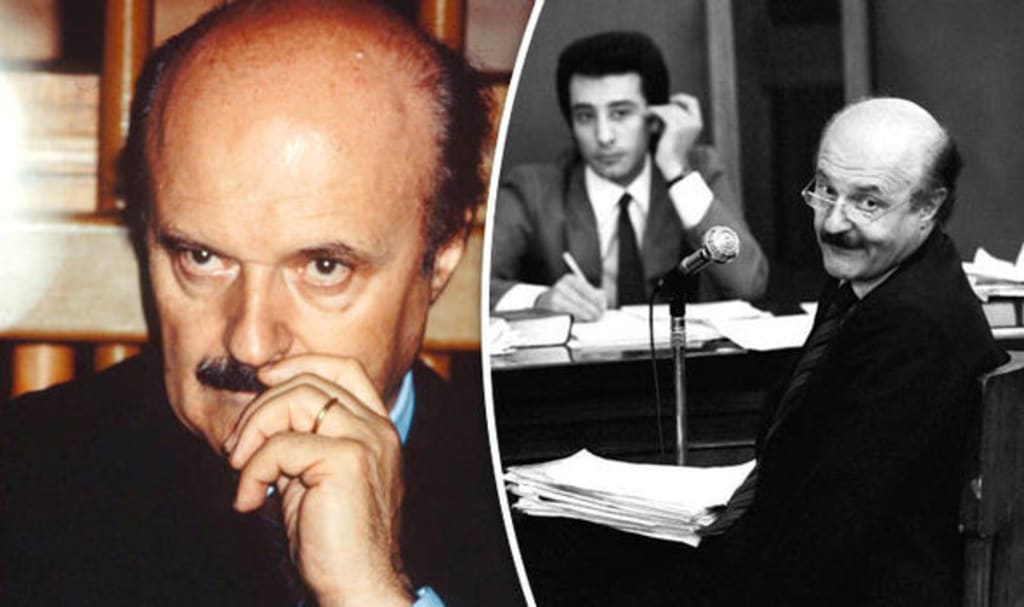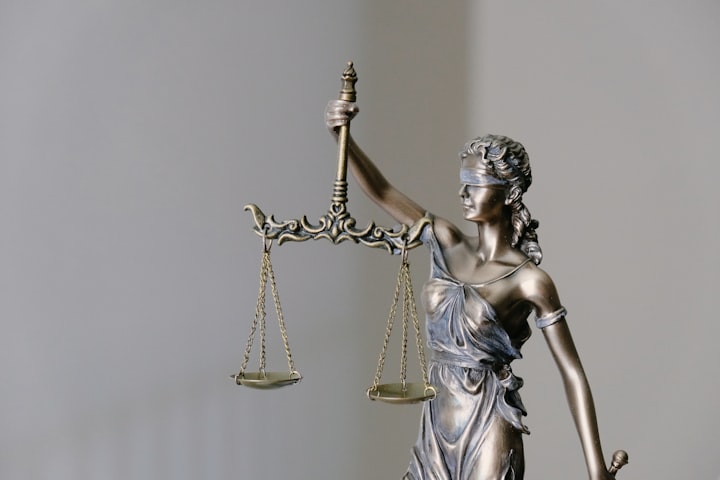The Killing of God's Banker and the Suspects Who Wanted Him Dead
This mystery would not be solved for decades and would involve The Vatican, Mafia, Masons and British Secret Service

Like a scene from a Hitchcock movie, a man's corpse dangles from an orange nylon rope tied to scaffolding under London Blackfriars bridge. He was dressed in a suit, waistcoat and striped shirt. Although he had shoes and socks on, he was minus a tie and belt. The watch on his wrist had stopped at 0152. A wallet containing £13000 in various currencies and twelve pounds of brick fragments was stuffed into his pockets. This was the body of Roberto Calvi, God's banker.
On 18th July 1982, a young postal clerk discovered the body and called the police. When officers searched, they found a passport in the name of Gian Roberto Calvini. However, the passport was a forgery, and the corpse's true identity followed shortly after.
Robert Calvi
Calvi was the president of Milan based Banco Ambrosiano, a prominent Italian private bank with ties to The Vatican, earning Calvi the unofficial title of God's Banker. He had gone missing from Italy the previous week. So how did he turn up under a bridge in London? This mystery would not be solved for decades and would involve The Vatican, Mafia, Masons and British Secret Service.
Calvi was twenty-seven when he joined the bank; at the time, Banco Ambrosiano was seen as a risk-averse institution. The bank, founded in 1896, offered credit in line with Christian ethics and beliefs; at one point, anyone depositing money would need to show proof of baptism. When Calvi joined, he started to develop their international ambitions. He began to acquire several offshore companies.
One of his early connections was Michele Sindora, who was not as lucky in business. A number of his deals went wrong; he was forced to liquidate his company in 1974. Calvi and Sindora had known each other since the 1960s; both had been members of the same masonic lodge. The lodge, which Licio Gelli led, called themselves the Black Friars due to the black robes they wore.
Calvi was a prominent figure in Italy for many years. His reputation escalated on 13th November 1977 when Milan woke up to banners across the city alleging irregularities at the Banco Ambrosiano. It was rumoured that Sindora was the instigator of the banners.
A fall from grace
The police then received a lengthy anonymous tip, which after investigations, led to Calvi's arrest on 20th May 1981. The masons were linked to a scandal to overthrow the current Italian government in the same year. The aftermath of this led Calvi to have no political protection for the first time in his career, which led to him going on trial in 1981 for illegal currency dealings. He was convicted and sentenced to four years.
On appeal, he was set free and resumed his job at the bank. However, the bank started to lose money due to a lack of faith in the president and soon collapsed. Calvi had made some powerful allies on his rise in banking; he sort help from these with his problems. He appealed to The Pope; in return, he offered a summary of all his wrongdoings, including financing a political organisation in the East and West. More specifically, he stated he would tell all about Sindora's criminal activities. The Vatican refused to offer any support.
Calvi sought help from Flavio Carboni, a Sardinian entrepreneur with ties to the mafia. Carboni provided Calvi with a passport which helped him flee to London; he was then meant to fly to America to be with his wife and daughter.
The final act
On 17th June, Calvi's long-term secretary Graziella Corrocher fell from the bank's window; it was ruled a suicide. The next day, seven hundred miles away, her boss was found hanging under the Blackfriars bridge. Calvi's death also was ruled a suicide.
Police changed the ruling of suicide to murder on the forensic evidence. Police stated that Calvi was killed on a boat and then strung up. The death was ruled a mafia hit due to Calvi's involvement with money laundering. In 2003, five people were charged with his death. All were acquitted on a lack of evidence.
Although, not successful the case proved that authorities were taking the murder seriously. In 2012, mafia godfather Francesco Di Carlo denied his involvement in the killing.
To date, authorities are no any closer to solving the murder of God's banker. Two governments have failed to find the culprits. The list of suspects remains long and varied, including the secret service, mafia, masons and Vatican. All had dealings with Calvi; all had reasons to want him silenced.

If you enjoyed this article, please subscribe to my writing, share it and give it a heart. As a writer tips and pledges mean a great deal to me, so a massive thank you if you send one.
About the Creator
Sam H Arnold
Writing stories to help, inspire and shock. For all my current writing projects click here - https://linktr.ee/samharnold






Comments
There are no comments for this story
Be the first to respond and start the conversation.